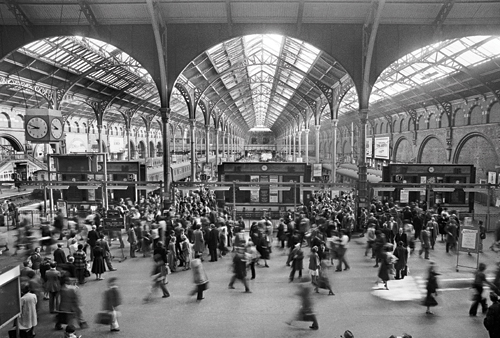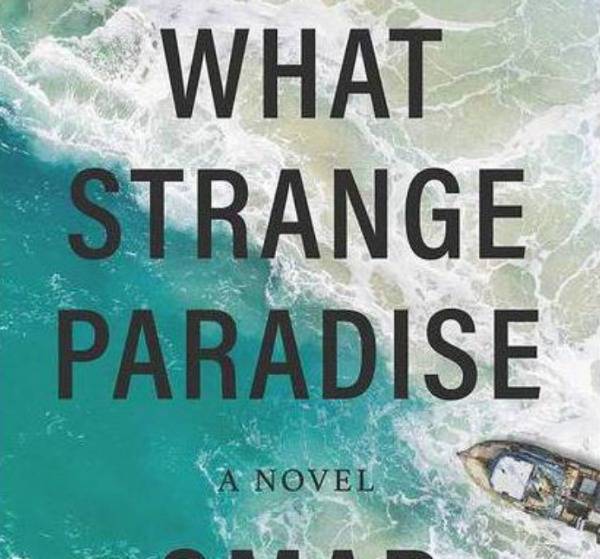
This article is a preview from the Summer 2015 edition of New Humanist. You can find out more and subscribe here.
The novelist, critic and musician Amit Chaudhuri has written five carefully observed novels and a collection of short stories, all much praised in the muted register reserved for “writers’ writers”, and in all of which very little happens. There’s a passage in Chaudhuri’s first novel (really a series of connected stories), A Strange and Sublime Address (1991), that sets the tone for its successors. Sandeep, a solitary 10-year-old from Bombay, spends school holidays with his mother’s family in Calcutta. (Amit Chaudhuri is also a Bengali who grew up in Bombay and visited relatives in Calcutta during the school holidays.) Sandeep normally lives in a high-rise with an ocean view, so he is fascinated by seeing life at ground level in Calcutta – presented here as a city of power cuts and stifling rooms. Early on in the novel, the narrator wonders: “Why did these houses seem to suggest that an infinitely interesting story might be woven around them? And yet the story would never be a satisfying one because the writer, like Sandeep, would be too caught up in jotting down the irrelevances and digressions that make up lives, and the life of the city, rather than a good story – till the reader would shout ‘Come to the point’…”
Chaudhuri makes a polemical claim for his brand of quiet watchfulness in the introduction to Clearing a Space: Reflections on India, Literature and Culture (2008). These essays, he writes, represent “the expression and temperament – of an Indian writer who doesn’t trace, as he probably should, his creative lineage to Salman Rushdie and the mandatory ‘hybrid’ post-colonial usages of English”. The idea that Indian writers only began to engage with English literature after the end of Empire, he argues, is nonsense; hybrid registers have existed since the 19th century, when Bengali writers adopted Western forms, such as the novel, and used the vernacular in literature for the first time.
Although not much happens in Chaudhuri’s sixth novel, Odysseus Abroad, it is livelier than his previous works, and very funny. We meet Ananda, a Bengali brought up in Bombay, studying English Literature at University College London in 1985. (These details are also true of Amit Chaudhuri.) The action takes place on a single day in July, the week after Live Aid. Both title and structure are obvious nods to Homer’s Odyssey and Joyce’s Ulysses. We see through Ananda’s eyes, but the more vital Odysseus/Bloom figure to his Telemachus/Dedalus is his bachelor uncle, who has lived in a bedsit in Belsize Park for 24 years.
Ananda’s anachronistic ambition is to be a great modernist poet. Chaudhuri treats him with an affectionate deadpan irony. Ananda is obsessed with getting a First and having a poem accepted by Poetry Review, but his self-absorption can’t match that of his uncle, Radhesh, or “Rangamama”, as he’s called. (“Ranga-mama” means “colourful maternal uncle”, but it’s jokingly applied to fair-skinned men regarded as handsome). Rangamama lives up to his nickname: his male ideal is Humphrey Bogart and his staple outfit is a three-piece suit worn with a maroon silk tie; off-duty, he wears maroon pyjamas and dressing gown.
In a three-page essay in 1999, Chaudhuri conjured up the nearly forgotten world of the Bengalis who lived in north London’s Belsize Park neighbourhood in the 1950s and ’60s. They were mainly men who came to study and went back to the subcontinent after passing their exams. Chaudhuri’s essay opens with a dreamlike conflation of fairy-tale convention and historical fact: “About five or six years after the war ended, and soon after India’s independence and the beginning of the end of the British empire…” The family relationships and chronology of Chaudhuri’s novel closely echo those of his own family. Chaudhuri’s father came to study in 1955; he was joined a year later by his wife and they both went back to India in 1961. When Chaudhuri was a student at University College London in the ’80s, his only real social contact, he says, was with a lonely bachelor uncle, his mother’s brother, who had by then lived in London for 30 years.
All Chaudhuri’s novels are lifted from autobiographical situations, but taking models from Homer and Joyce in Odysseus Abroad allows him to lean on, or make light of, their mythic and modernist structures. For every allusion I can catch, I am sure I’m missing others. When Ananda thinks of his preference for untragic Sanskrit literature over Greek – “He was a proponent of joy! This despite being drawn to Philip Larkin” – you don’t have to know that his name is the Bengali word for “joy” to get the punchline, but there’s another level of enjoyment if you do.
Ananda has obvious tastes in contemporary English poetry and the only “serious novels” he’s read are All Quiet on the Western Front, A Farewell to Arms and the late novels of Thomas Hardy, but his uncle’s taste matters most to us. Rangamama is a cliché: the cultured Bengali obsessed with Rabindranath Tagore, the poet, novelist, artist, composer and political thinker – “a veritable bearded Zeus atop Olympus” as Ananda (perhaps Chaudhuri, too) sceptically regards him. This easily mocked enthusiasm for Tagore is matched by Rangamama’s obsession with Hampstead, and his delight at local sightings of foxes and Glenda Jackson.
Chaudhuri’s novel is filtered through the consciousness of two privileged individuals. Ananda will go home – he thinks of himself as Indian – and doesn’t have to understand the new categories of people created by empire. Remembering his first encounter with a Bengali child growing up in Britain, he thinks: “What was ‘Asian’ anyway – an equivocal category, neither British nor Indian, for people who had essentially nowhere to go?” Rangamama, in contrast, has exchanged most of his privileges for a lonely freedom, presented as a heroic, historically determined choice: “he saw the universe in a bright humanist radiance…that’s what the Brahmo antecedents of modern Bengal had done – turned the Bengali into a solitary voyager, with no religion and nothing but a raiment of poems, Tagore songs, and – instead of deities – novelists and poets.”
Chaudhuri has also reclaimed a London that is disappearing: “King’s Cross was on the very verge of the capital City; but it was its utter opposite. No money seemed to reach it.” Ananda lives in Warren Street and when he walks around Bloomsbury and Fitzrovia there are reminders of Patrick Hamilton and Jean Rhys at every turn. There are misfits even in the Elysian Fields of Belsize Park, in the form of the art-house filmgoers at the Screen on the Hill (“contrary lonely English people ... who were deeply Francophile”).
Living in London, for Rangamama, is a release from choosing between national identities and borders that don’t fit. The hybridity imposed on him by history can only be reconciled in the metropolis. The other imaginary place Odysseus Abroad conjures up is Bengal – although it’s more complicated than that, since, as Hindus originally from Sylhet (part of Assam before it was transferred to East Pakistan in 1947), Ananda’s family is a historical curiosity. Rangamama shows flashes of snobbishness – addressing a Sylheti waiter in “Calcutta” Bengali (the equivalent of Received Pronunciation), but he’s aware of the contradictions: “In prelapsarian undivided Bengal, as his uncle had once revealed wryly to Ananda, the Bengali Hindus were called ‘Bengalis’, the Bengali Muslims just ‘Muslims’.”
Odysseus Abroad does not present London as a utopia: the city is more imperfect and interesting than that. Ananda is also a hardline materialist. “Even misery in Warren Street was more congenial to him than any possible idea of paradise.” In this he agrees with the ghost of Achilles in Book XI of the Odyssey, when he says he would rather be a slave among the living than rule among the dead.
In “Beyond ‘Confidence’”, the final essay in Clearing a Space, Chaudhuri returns to Rushdie and rightly points out that Rushdie is most interesting when read for his “enthusiasms, his memory, his contradictions”. But the success of Midnight’s Children, and the subsequent boom of Indian writing in English, is a triumph for writing about “visibility, success, proximity to power”. For Chaudhuri, confidence is only valuable when it’s risky, as in the work of Muriel Spark and John Coltrane, and “the country that wants the literature of confidence will be intolerant itself”. Odysseus Abroad, like the rest of Chaudhuri’s fiction, is a manifesto for another vision of literature and the world.

